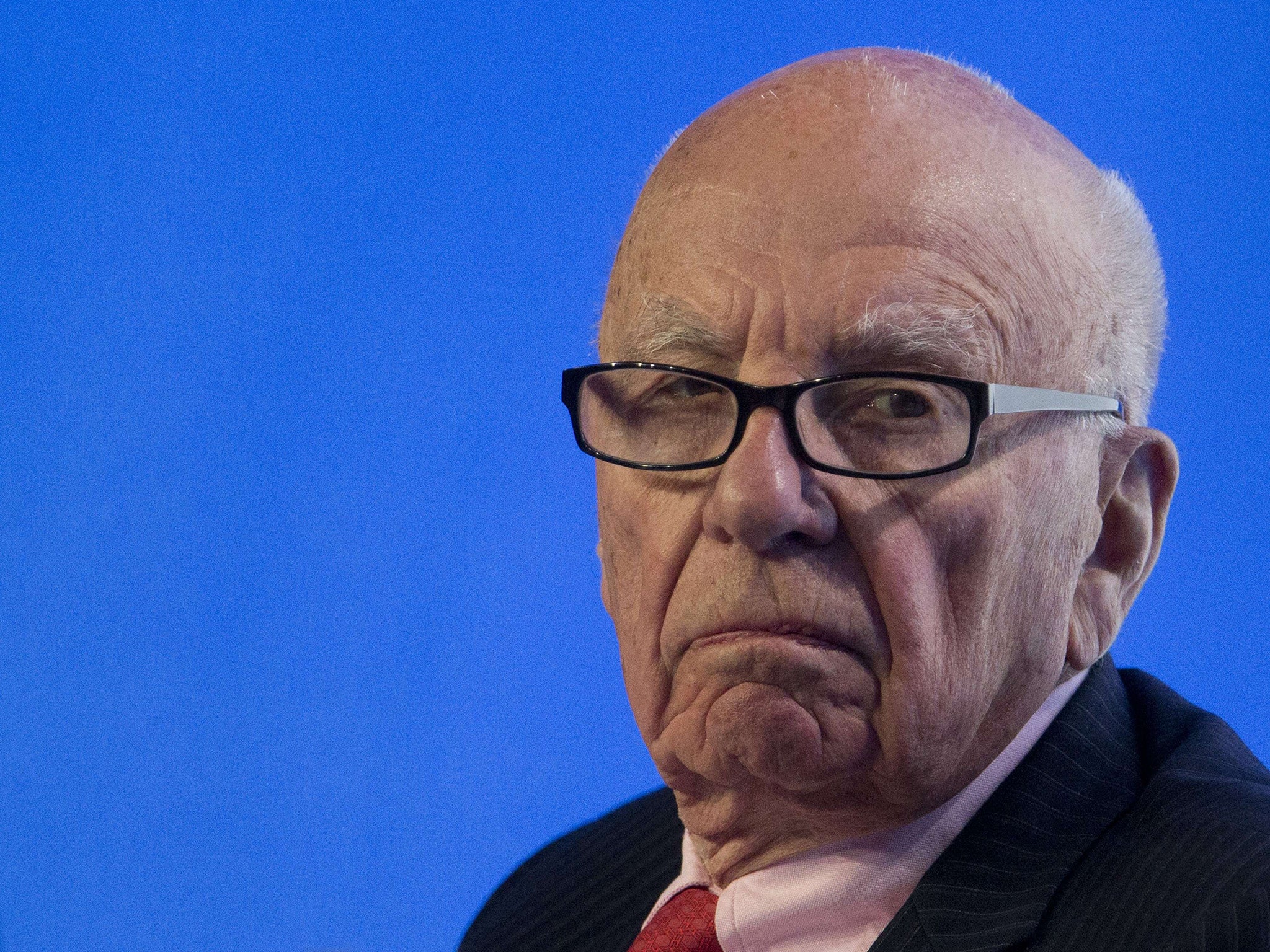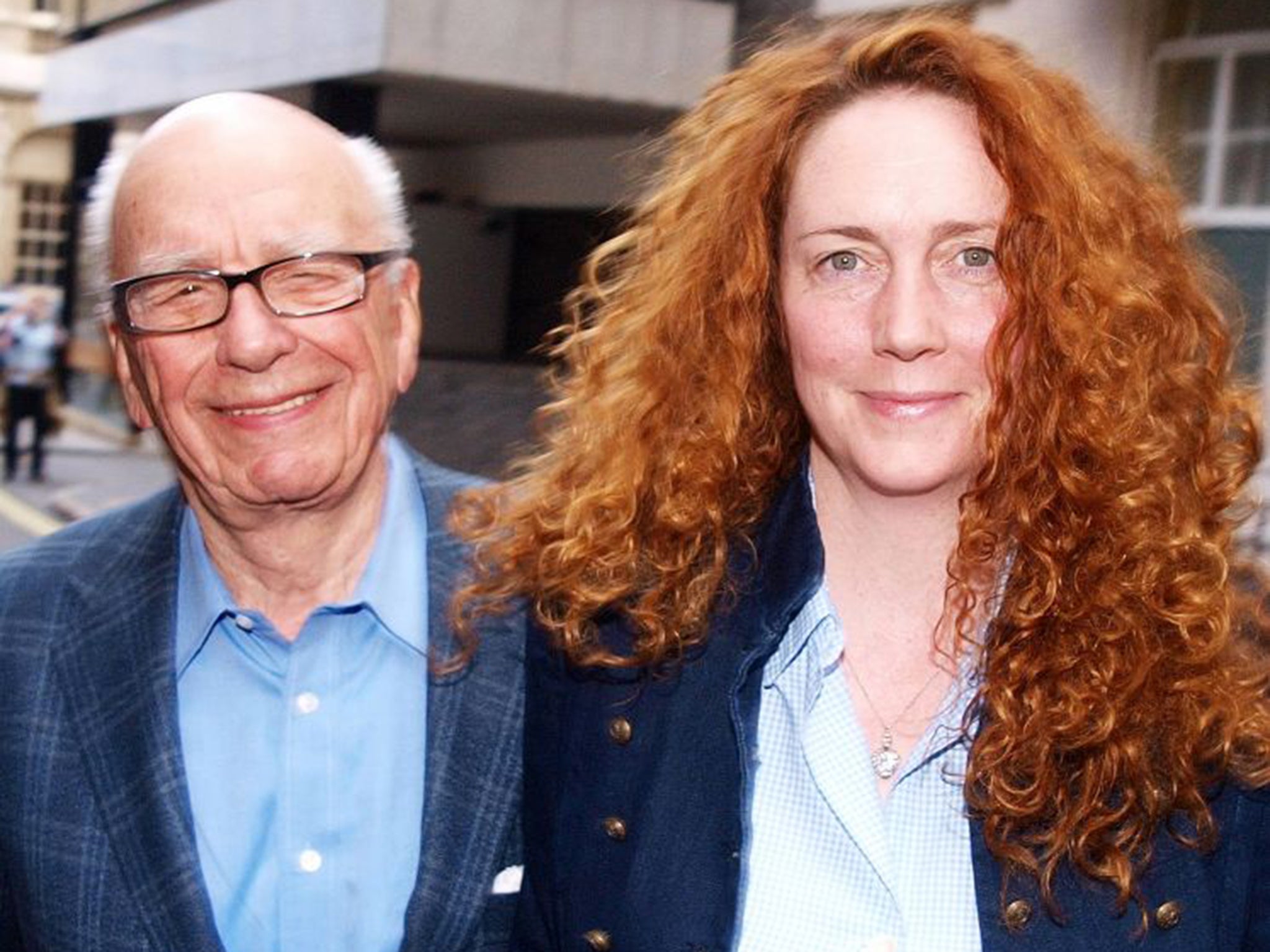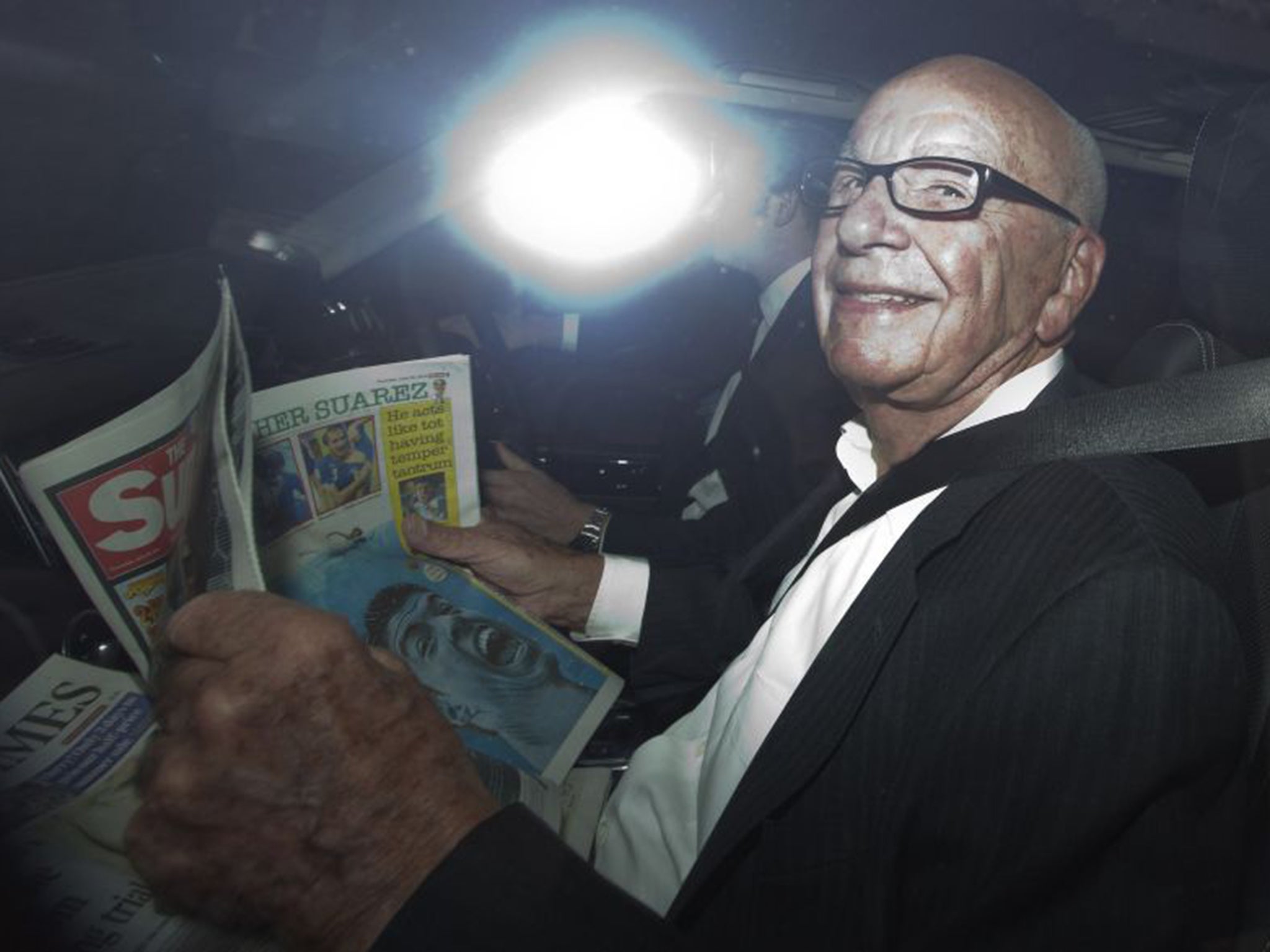News Corp’s new acquisition shows why Rupert Murdoch may well outlast his print-era rivals
London tech start-up company Unruly were bought for up to £114m

With the words “Holy Moly! Exciting times ahead,” the founders of east London tech start-up company Unruly tweeted the news that will change their lives forever.
They were bought last week by Rupert Murdoch for up to £114m. That is a remarkable deal for so many reasons.
While News Corp issued a press release, datelined New York, Unruly’s founding triumverate – Matt Cooke, Sarah Wood and Scott Button – announced the development in a blog, accompanied by an informal photo of the trio with Cooke dressed, like any good tech entrepreneur, in a hoodie.
The blog reminisced about how the company began in 2006, in a shared office in Brick Lane. “There was no running water and the coffee table was a plank of wood balanced on traffic cones, but hey the rent was cheap.” And these classic start-up roots aren’t about to be pulled up, they promised. “We’re agile, we’re passionate, we’re disruptive – and that’s not about to change.” Life will carry on the same, despite being bought by the world’s most powerful media tycoon. Innocent said similar things when selling their smoothies business to Coca-Cola.
The tech sector partied because it remains the dream endgame of many digital entrepreneurs to be bought up for millions by a traditional media giant. The deal provided a reputational boost for Britain’s digital sector and for Tech City, a Government-backed grouping of east London digital firms, for which Unruly was a champion. Conservative minister Baroness Shields, who formerly led Tech City, tweeted her “massive congratulations” to Ms Wood and “the splendid team”.
But it still seemed odd to see Ms Wood pictured with Rebekah Brooks, newly returned to the top job at Murdoch’s newspaper arm News UK, which she quit in 2011 at the height of the hacking scandal. One moment you’re grafting in grimy “Silicon Roundabout”, the next you’re loaded, working for Rupert and reporting to Rebekah. As Unruly were deluged with social-media high-fives, Ms Wood told the website Wired that News UK felt like a perfect partner. “Being part of a larger, passionate, purposeful team really excites us,” she said. “The culture fit felt really strong.” It must be baffling to recent media graduates, schooled in the narratives of the News of the World and the divergence of new and old media.

But of course it also makes great sense. Unruly – which specialises in measuring and optimising video advertising – is clearly a very well-run company. It operates a “Social Video Lab” in its London headquarters and is able to predict the “virality” of video using an algorithm based on 250,000 viewer reactions and 1.3 trillion video views. Unruly’s clients include Dove, Evian and Renault and it now has 200 staff across 15 offices, including hubs in New York and Singapore.
Unruly’s skills are invaluable to a content company such as News Corp and its commercial partners, even more so as The Sun emerges from behind the online paywall. Website TechCrunch said the deal would help the publisher take on online rivals such as Buzzfeed and Vice News (Murdoch also has a stake in Vice). The acquisition is the kind of move I expected from News UK a year ago, as it departed Wapping for shiny modern premises, re-branding itself as much more than a print newspaper business. No one thought, back then, it would be Rebekah who would be forging alliances with the tech sector.
This is her first deal since her return and it sends clear messages. Brooks is no longer the high priestess of tabloids overseeing The Sun’s mockery of Jeremy Corbyn in a jester’s hat. She is the commercially focused businesswoman who sees the future and has a firm grasp of technology.
Mr Murdoch himself still loves print, as he showed last week with the relaunch of The Wall Street Journal as a broadsheet in Europe and Asia. He has a chequered record on tech, with the disastrous MySpace purchase the most obvious blot on his resumé. But his record in business speaks for itself. There is no reason to doubt that the potential £114m outlay on Unruly (half upfront, the rest dependent on performance) will be money well spent.
The deal tells us much about the changing values of new and old media. The young Shoreditch tech firm is effectively worth more than Express Newspapers (the Daily Express, Sunday Express, Daily Star and Daily Star Sunday), for which proprietor Richard Desmond has so far failed to find a buyer who is prepared to meet his £100m valuation.
He is keen to sell and talks with Trinity Mirror, publishers of the Daily Mirror, have continued on and off since the start of the year. But Trinity Mirror, which is anxious to expand its portfolio to better serve digital advertisers, is set to acquire regional newspaper group Local World, which is valued at £200m.

The Local World CEO is David “Monty” Montgomery who, interestingly, is a former CEO of the Mirror titles and was once editor of the News of the World. Now, like Brooks, he has turned his attention to generating digital revenues. Local World, whose titles include the Nottingham Post, has invested £300m in repositioning its business model to drive online growth.
Trinity Mirror, which needs to expand to convince shareholders of its future potential, already owns 20 per cent of Local World. The City sees it as the “natural buyer” for the rest and, if the Iliffe family is allowed to remove certain titles from the deal (previously a stumbling block to the sale), then it should go ahead. Local World made profits of £43.6m last year and, unlike Trinity Mirror itself, has no pension deficit.
Although Trinity Mirror could still manage to do a second deal for the Express titles, it’s highly unlikely for the time being. “It doesn’t seem as if anyone else wants to take them on and Trinity Mirror will probably feel it could wait,” says Ian Whittaker, of analysts Liberum.
Where does that leave Mr Desmond? The proprietor recently returned to his newspapers after a holiday break in Majorca, where he provided his domestic staff with uniform white shorts brought from London. But after selling Channel 5 he seems less interested in his media businesses of late, being more focused on property deals, including the development of his printing-works site into housing on London’s Isle of Dogs.
He’s taken plenty of money out of Express Newspapers since he acquired it in 2000 but it seems unlikely that he will ever recoup the £125m he paid for it. For that sort of money, he would need to be offering something of Unruly’s digital cachet.
And although the websites of the Express and Star have recently made gains, it is after years of neglect because Desmond has never been an online evangelist. “Buzzfeeds, Schmuzzfeeds,” as he recently commented to the Financial Times.
The end for lols, trolls and caustic comments?
Almost since the day newspapers took their content onto the internet, the inclusion of reader comments has been the accepted culture. But these interactive sections can degenerate into arenas for abuse.
Now, sites from the Chicago Sun-Times to Reuters and The Week have had enough and are shutting down comment threads. Reasons cited range from the cost of moderation to legal actions resulting from posts. Many publishers would rather readers shared stories with Facebook friends or Twitter followers and made their points there. Ben Frumin, editor-in-chief of TheWeek.com, told Nieman Journalism Lab that page visits nearly doubled after comments were dropped. “If there was no convention of internet commenting – if it wasn’t this thing that was accepted – you would think it was a crazy idea,” he said.
Half-baked ‘stings’ do journalism no favours
The Daily Telegraph’s anguished splash on last week’s news that the Commons Standards Committee had rubbished its latest “cash for access” investigation suggested the paper felt victimised by MPs. The Telegraph, which exposed the parliamentary expenses scandal in 2009, had staged (with Channel 4’s Dispatches) an undercover sting on Jack Straw and Malcolm Rifkind in February. As Standards Commissioner Kathryn Hudson cleared the two politicians, the paper led on Friday with the headline: “The proof that MPs cannot be allowed to police themselves.” Channel 4 also defended its investigation and has called on Ofcom to examine its work.
Much as I like to back investigative journalism, the committee’s report gives cause for concern. “By selection and omission the coverage distorted the truth and misled the public as to what had actually taken place,” it said. The Daily Telegraph and Dispatches made much of Mr Straw’s claims that he operated “under the radar”, and could “bring my name” to a relationship with a company. Such loaded expressions look much more innocent in the context of the full transcript, Ms Hudson decided.
Investigations are expensive. Audience expectations of sensational revelations have grown over time. If a story doesn’t stack up, it’s hard to take a softer line and harder still to can the story altogether. But the reputation of investigative journalism is at stake here. The Commissioner said this was the third media “sting” she had examined in two years, and in two of them no rules had been broken by Parliamentarians.
Join our commenting forum
Join thought-provoking conversations, follow other Independent readers and see their replies
Comments
Bookmark popover
Removed from bookmarks